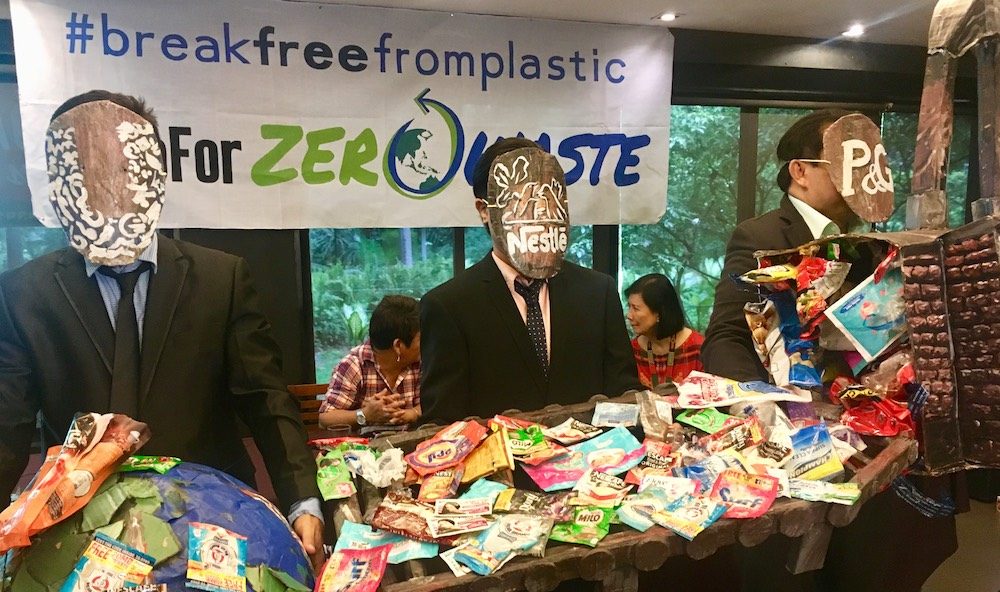SUMMARY
This is AI generated summarization, which may have errors. For context, always refer to the full article.

MANILA, Philippines – Six of the top 10 plastic polluters in 6 major cities in the Philippines are multinational brands, according to the latest waste and brand audit by environmental groups Global Alliance for Incinerator Alternatives (GAIA) and Mother Earth Foundation (MEF) released on Friday, June 1.
The groups revealed that single-use plastic packaging from Unilever, Procter & Gamble, Nestlé, PT Mayora, Colgate-Palmolive, and Coca Cola comprised around 75% of all collected residual waste, or waste that cannot be composted nor recycled.
The audit was conducted in Malabon, Quezon City, Batangas City, Nueva Vizcaya, Tacloban City, and San Fernando, Pampanga.
Findings of the study are consistent with the brand audit conducted in Freedom Island in September 2017. (READ: Why PH is world’s 3rd biggest dumper of plastics in the ocean)
About 79% of branded plastic residual waste came from food packaging, followed by household (12%) and personal care (8%) products.
The audit also indicated that top corporations producing plastic residual waste earned a total of $22 billion, while cities surveyed spent $73 million in waste management. (READ: Big Western brands polluting oceans with cheap plastic in PH – report)
“It’s time we hold these companies accountable. They cannot continue raking in money and then passing on the responsibility and costs of cleaning their mess to cities and Filipino taxpayers,” said Froilan Grate, GAIA regional coordinator and MAF President.
Of the total waste collected in the identified areas, 61.3% are biodegradable, 19.2% are recyclable, and 3.4% are hazardous.
Benedict Lagman, councilor of San Fernando, Pampanga, urged other cities to replicate their efforts to curb plastic pollution.
San Fernando has been consistently recognized for its strict implementation of the Ecological Solid Waste Management Act, which mandates segregation of waste at households. Lagman attested that the efforts allowed local government to significantly reduce waste handling costs.
“We still spend P15 million just to manage residual waste, mostly from plastic,” he said.
Nestlé earlier announced that it aims to make 100% of its packaging recyclable or re-usable by 2025.
“Tackling it [the plastic waste issue] requires a collective approach. We are committed to finding improved solutions to reduce, re-use and recycle,” Nestlé CEO Mark Schneider said.
In a 2017 release, Unilever said they are committed to “reduce the weight of the packaging used this decade by one third by 2020” and increase the use of recycled plastic content in their packaging to at least 25% by 2025.
“Our plastic packaging plays a critical role in making our products appealing, safe, and enjoyable for our consumers. Yet it is clear that if we want to continue to reap the benefits of this versatile material, we need to do much more as an industry to help ensure it is managed responsibly and efficiently post consumer-use,” Unilever CEO Paul Polman said.
Procter & Gamble, meanwhile, committed to reduce packaging by 20% per consumer use and make 90% of their packaging recyclable by 2020. – Rappler.com
Add a comment
How does this make you feel?
There are no comments yet. Add your comment to start the conversation.